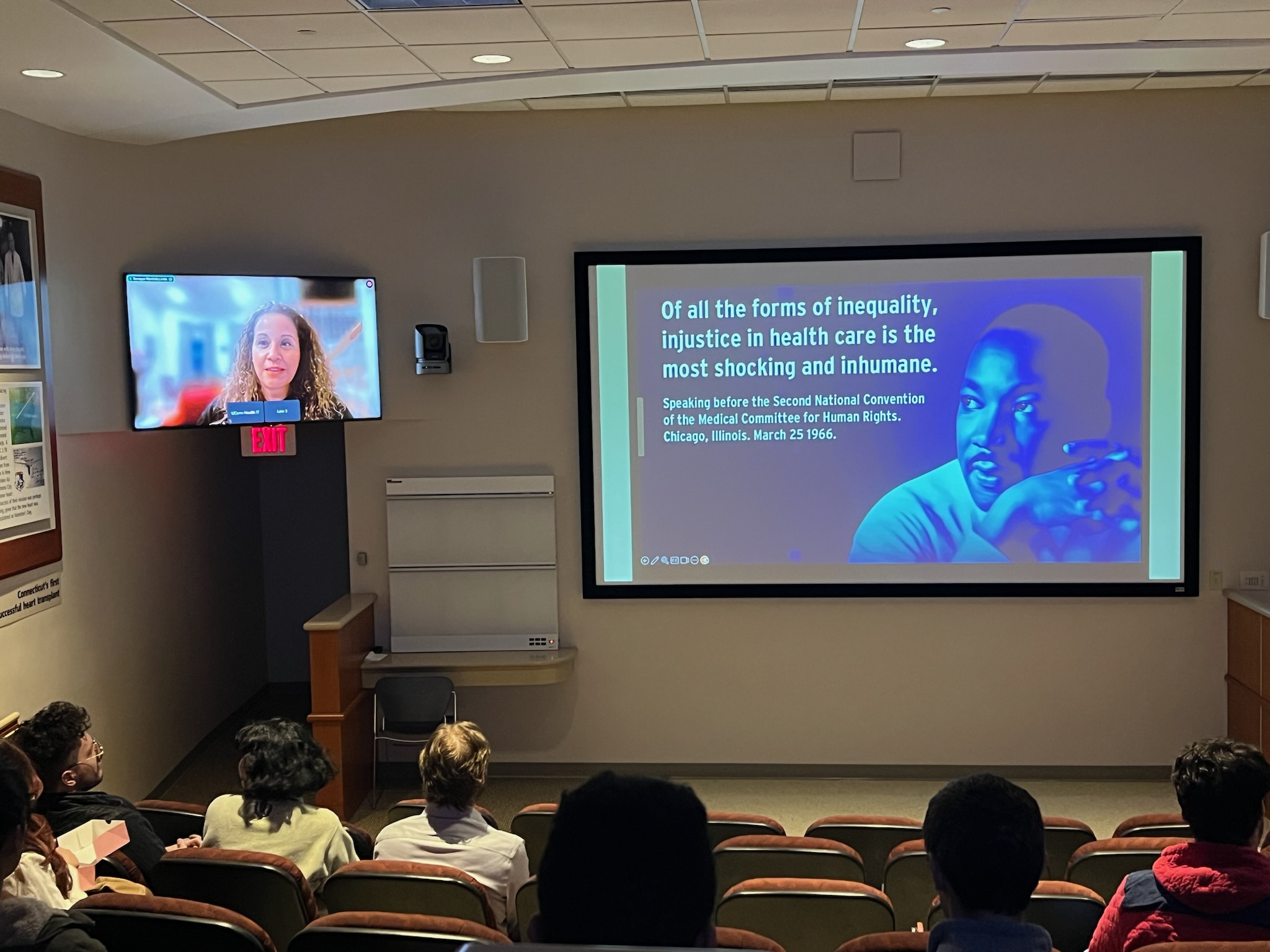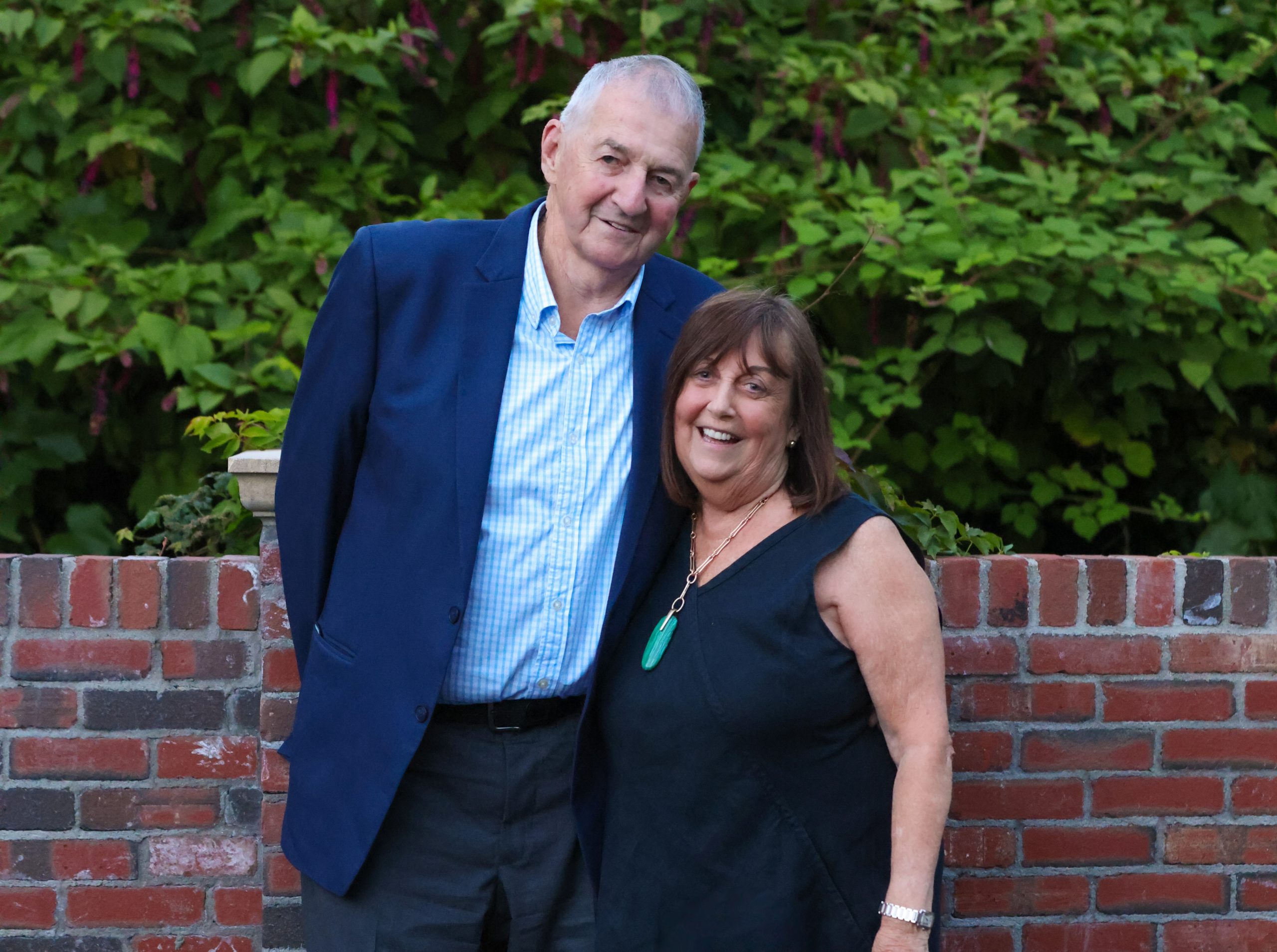Women in menopause, men with low testosterone, and adults transitioning genders all sometimes see doctors about hormone therapy. But personally tailored hormone treatments may not be better, or safer, than standard Food and Drug Administration-approved hormone therapies, the National Academies of Science, Engineering and Medicine reported on July 2. Custom hormone treatments, called compounded bioidentical hormone therapies (cBHTs), are often promoted by celebrities as natural or safer than FDA-approved therapies. UConn toxicologist José Manautou, who heads the department of pharmaceutical sciences, served on the committee that wrote the National Academies report. Below, he answers UConn Today’s questions about cBHTs and explains why both doctors and consumers should think twice about prescribing and using them.
What does bioidentical mean, and what is a bioidentical hormone therapy?
“Bioidentical” describes hormones that are chemically and structurally identical to those produced by the human body. Bioidentical hormones may be synthesized from plant or animal sources or completely synthesized chemically. They are offered both as products approved by the Food and Drug Administration and as compounded preparations that are not FDA-approved. Highly popular are the compounded formulations that contain hormones commonly derived from soy and Mexican yams. Because the starting materials are natural, they are promoted by certain advocates as “chemical free” and “safer” than FDA-approved drugs. But even bioidentical hormone medications that have plant sources as a starting material must be chemically modified in the laboratory before they are given to patients.
What conditions are treated with bioidentical hormone therapies?
Primarily symptoms associated with menopause in women. Night sweats, hot flashes and flushes, vaginal atrophy and dryness. Gonadal dysfunction in men is another indication for the use of bioidentical hormones.
Female sexual dysfunction and gender dysphoria are two indications for which there are no FDA-approved BHT medications. Both indications are treated with off-label use of FDA-approved bioidentical hormone therapies, or with cBHTs.
Advocates and media influencers claim that correcting hormonal imbalances and/or restoring hormone levels to those seen in young adults is key to a healthy and long life. But there’s very little data for this; a lot of it is just anecdotal. And some of the claims, such as that cBHTs can treat autoimmune disorders, are unbelievable. We had members of the public come in, sharing hard data as well as personal testimonials. Everything that came in and seemed worth looking into, we looked into.

What is a compounding pharmacy, and why might someone need a compounded drug instead of the standard FDA-approved formulation?
Any pharmacy can compound medications, as long as the pharmacist has the right training and experience with this practice. Simply explained, a pharmacist combines active and inactive pharmaceutical ingredients in-house to meet the needs of individual patients. They might need it if, for example, they have an allergy to an ingredient in the standard FDA-approved formulation.
What’s pushing consumers towards compounded bioidentical hormone therapies (cBHTs), when there are FDA-approved versions available?
Part of the appeal of compounding BHT is that multiple hormones can be combined into a single dosage not found in a single FDA-approved product. Other factors that draw patients to compounded BHT is the idea of personalized or “boutique” medicine where medications can be tailor-made to meet the specific needs of a patient. A significant driving element for consumers who use compounded BHT is the belief that these are safer, more natural hormone therapy alternatives, not to mention the generalized mistrust in the pharmaceutical industry by some segments of the public.
Why did the National Academies committee conclude that compounded versions of BHTs should be restricted?
The committee did a systematic review of all the information available on the utility and safety of compounded BHT medications. This included peer-reviewed articles, consumer surveys, observational studies, and formal position statements and guidelines developed by scientific learned societies. Our review led us to the conclusion that there is insufficient evidence to support the clinical utility of cBHT for treatment for menopause and male hypogonadism symptoms. Given such uncertainty, prescribers should restrict the use of cBHT to patients whose medical needs cannot be met by FDA-approved drug products.
The committee recommends that the use of compounded BHT should be restricted, only used for a patient who has a documented allergy to an ingredient in an FDA-approved product, or when a patient needs a dose form not available as an FDA-approved drug.
Many transgender and gender transitioning individuals use cBHTs because they are less expensive than FDA-approved drugs, and BHTs are usually not approved by insurance for transgender purposes. What is your guidance for people in this situation, who need these drugs but cannot get them paid for by insurance?
Clearly, hormone therapy is important and necessary for transgender or transitioning male and female adults, as well as adolescents. This is a fascinating area of treatment. It was not what the FDA asked us to concentrate on, but we thought it was important to touch on. There are guidelines established by various professional medical organizations describing the off-label use of FDA-approved BHT for this patient population. Unfortunately, it is not uncommon for these individuals to be denied insurance coverage for hormone treatment. Compounded cBHT medications are marketed as a lower cost alternative to conventional FDA-approved therapy. However, the committee was not able to make definite a conclusion on cost, since no studies have specifically examined the cost of cBHT therapy for transitioning genders.
What should providers do when trying to help an individual with gender dysphoria or female sexual dysfunction, both conditions which can be treated with BHTs but for which the FDA lists no approved drugs?
To be transparent and clear with their patients in explaining that cBHTs do not undergo the rigorous testing for efficacy and safety that FDA-approved medications are subject to. Providers should also explain to their patients that all use of cBHT , including therapy for gender dysphoria, should adhere to established clinical guidance and that monitoring for long-term risks is necessary.
The report did not conclude that cBHTs are inherently unsafe, only that there is little research to support their safety or efficacy. What kind of research is needed for evidence-based use of cBHTs?
The committee made a series of recommendations that can be found in the National Academies report. In brief, well-controlled, randomized clinical trials for the most commonly prescribed compounded BHT, such as Bi-est and Tri-est, will be needed to inform practitioners, pharmacists, and the public about safe and effective dosing practices. Furthermore, studies that compare FDA-approved hormone therapy products with comparable active ingredients and dose forms of compounded BHT will be equally important. Such studies will inform if the safety and efficacy of compounded BHT is higher, as claimed by some. The committee also advocates for accurate and consistent collection of adverse event data for cBHT preparations, and for the determination of volume, scope, and financial costs of prescribed cBHT preparations.



